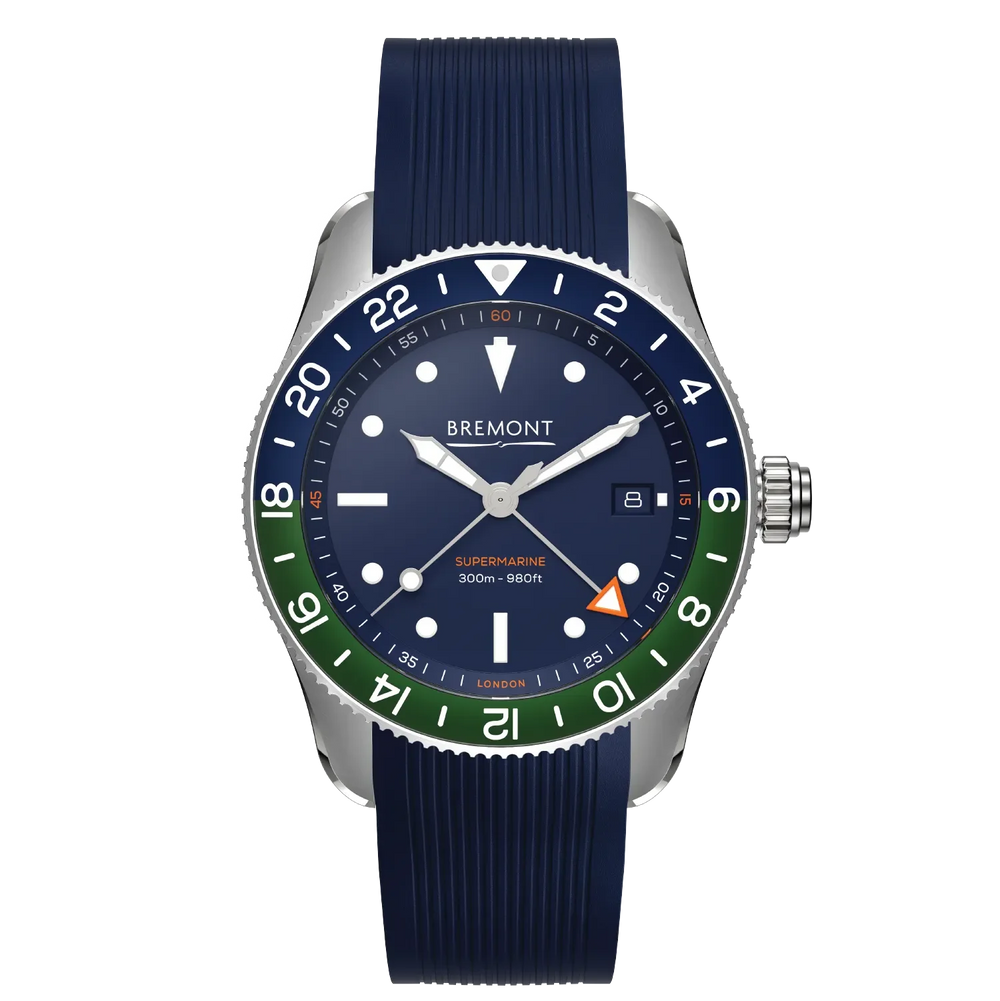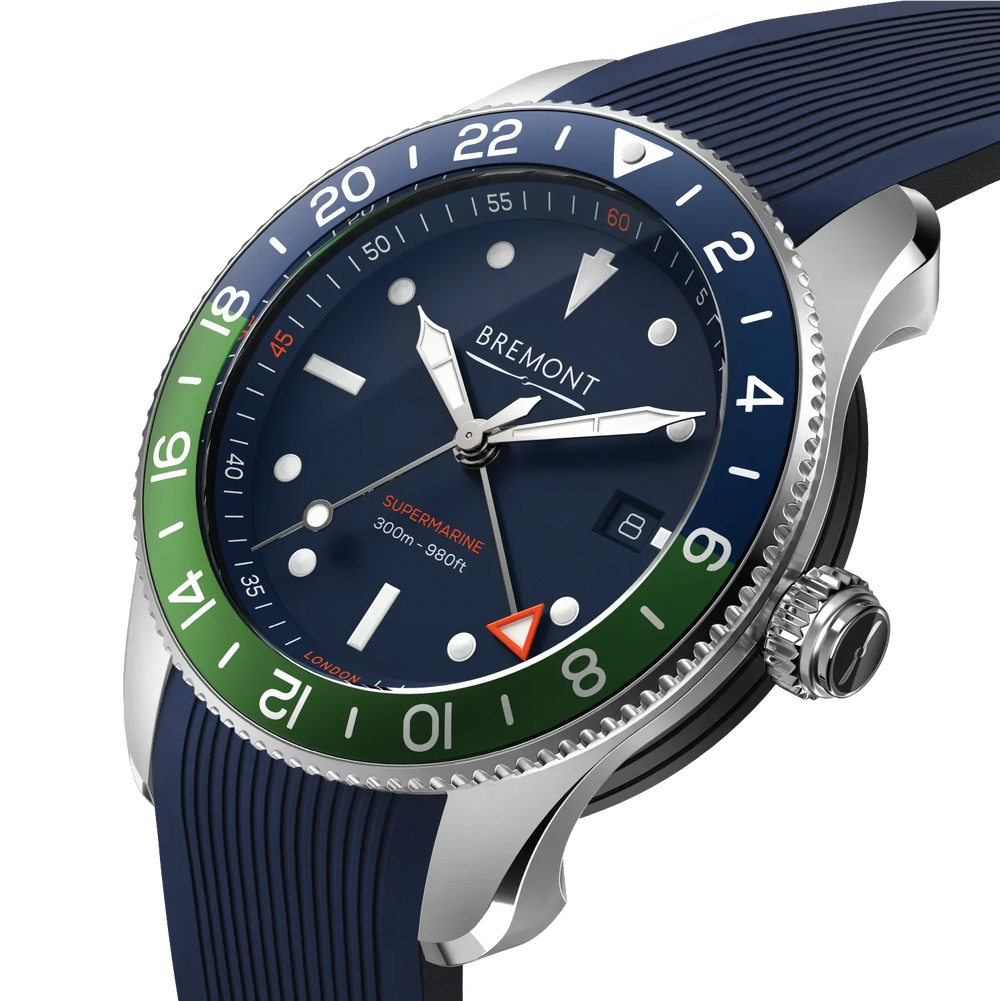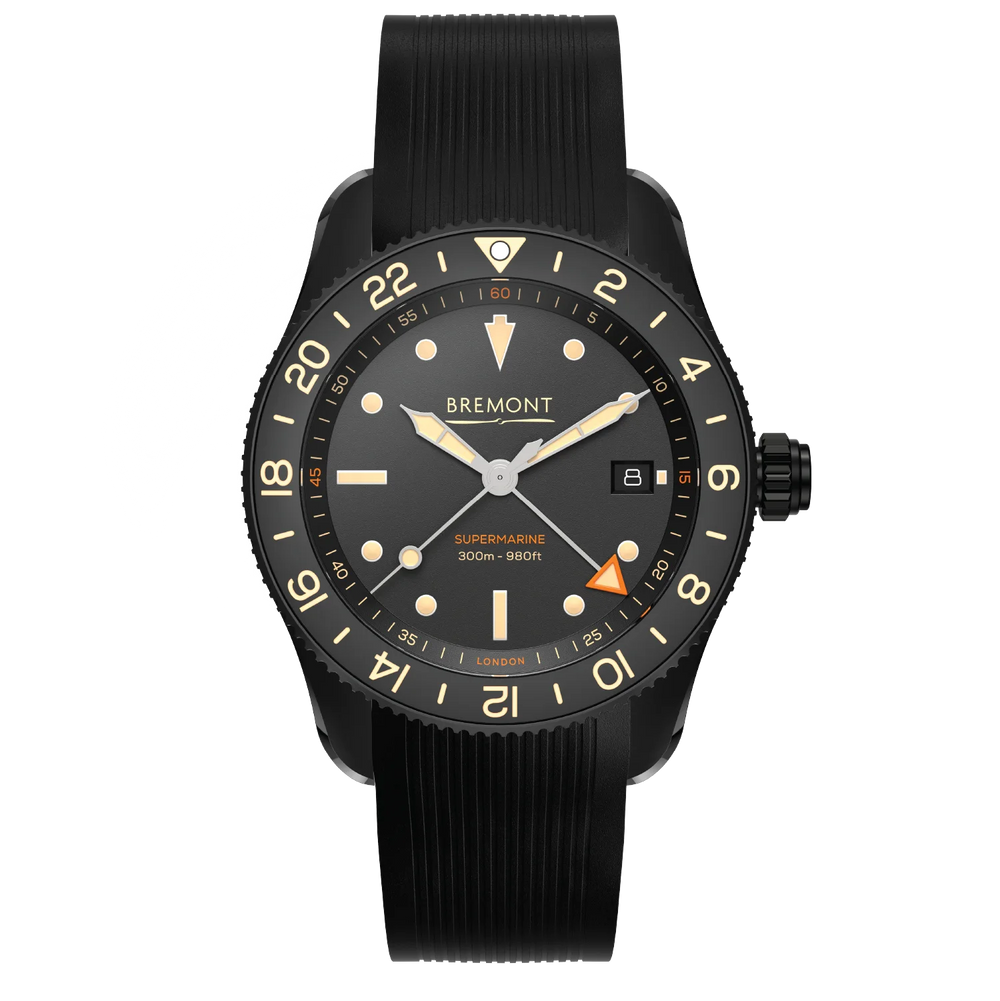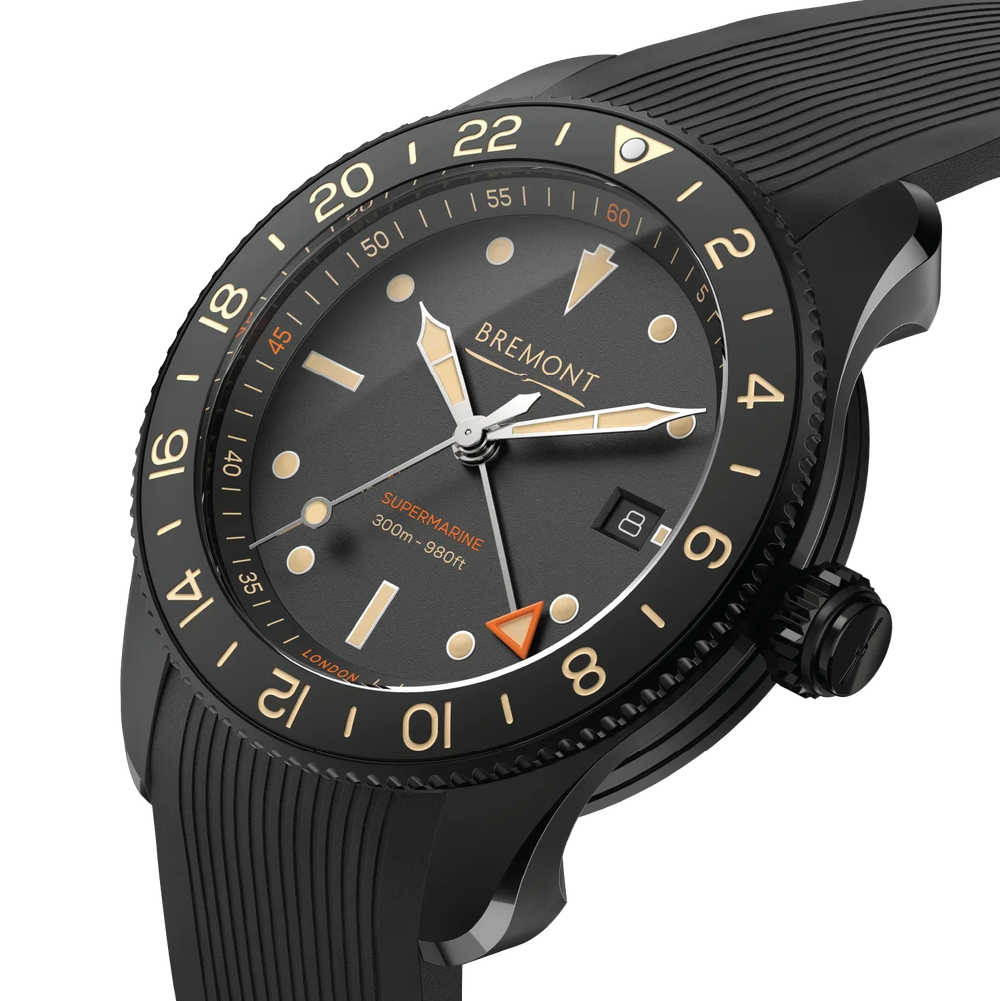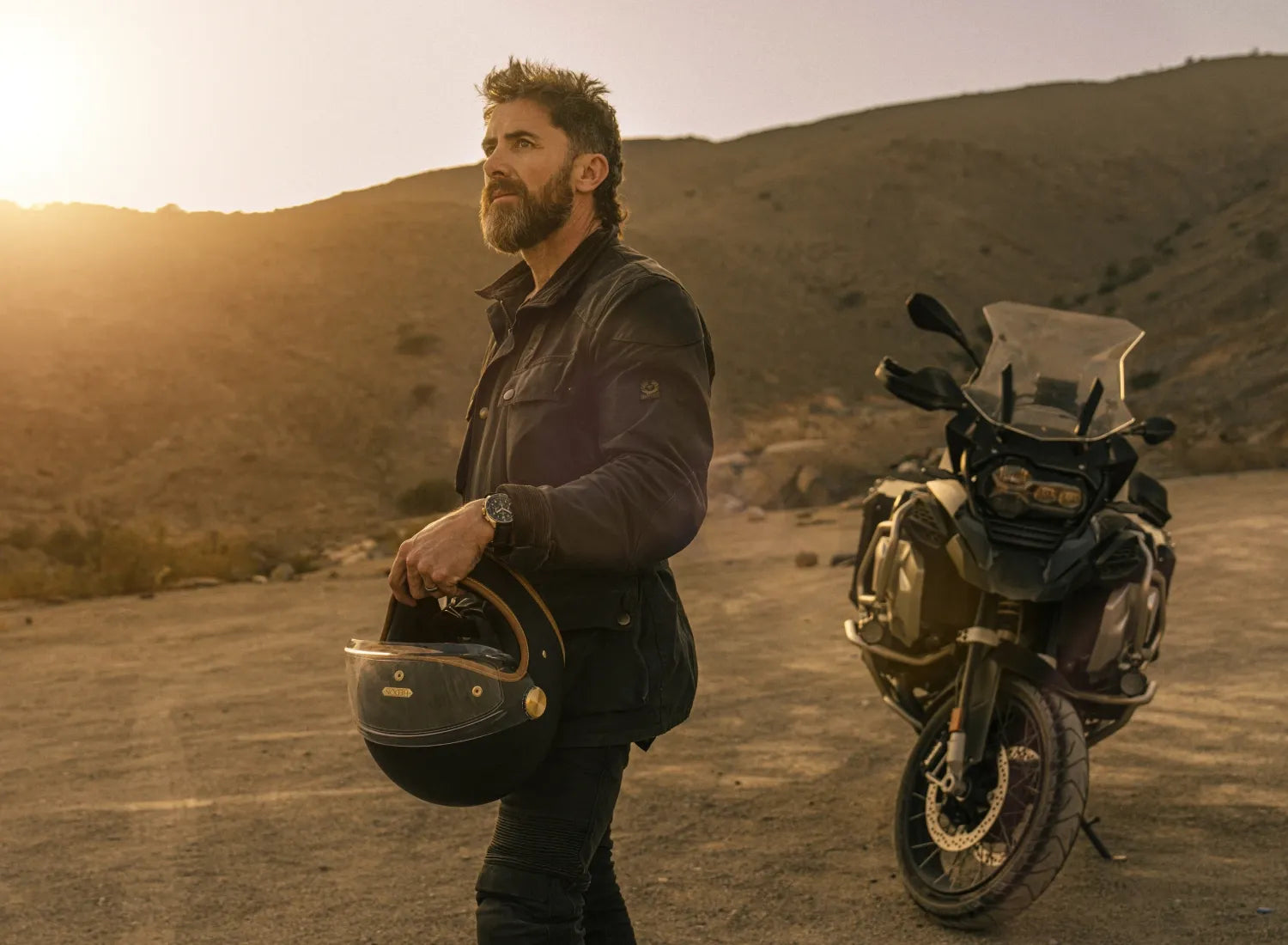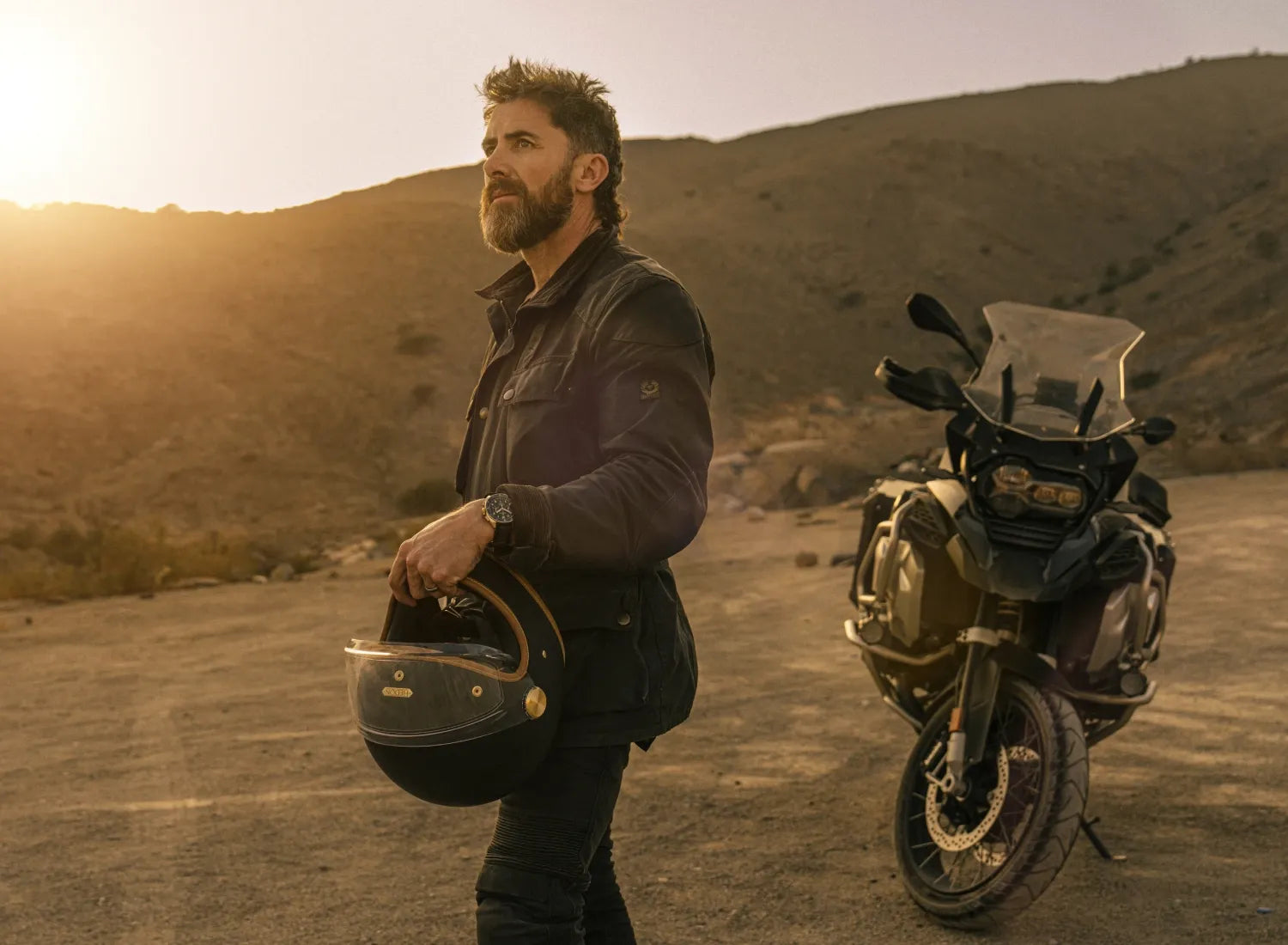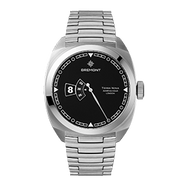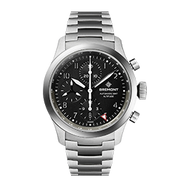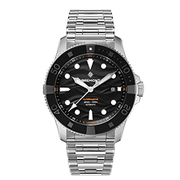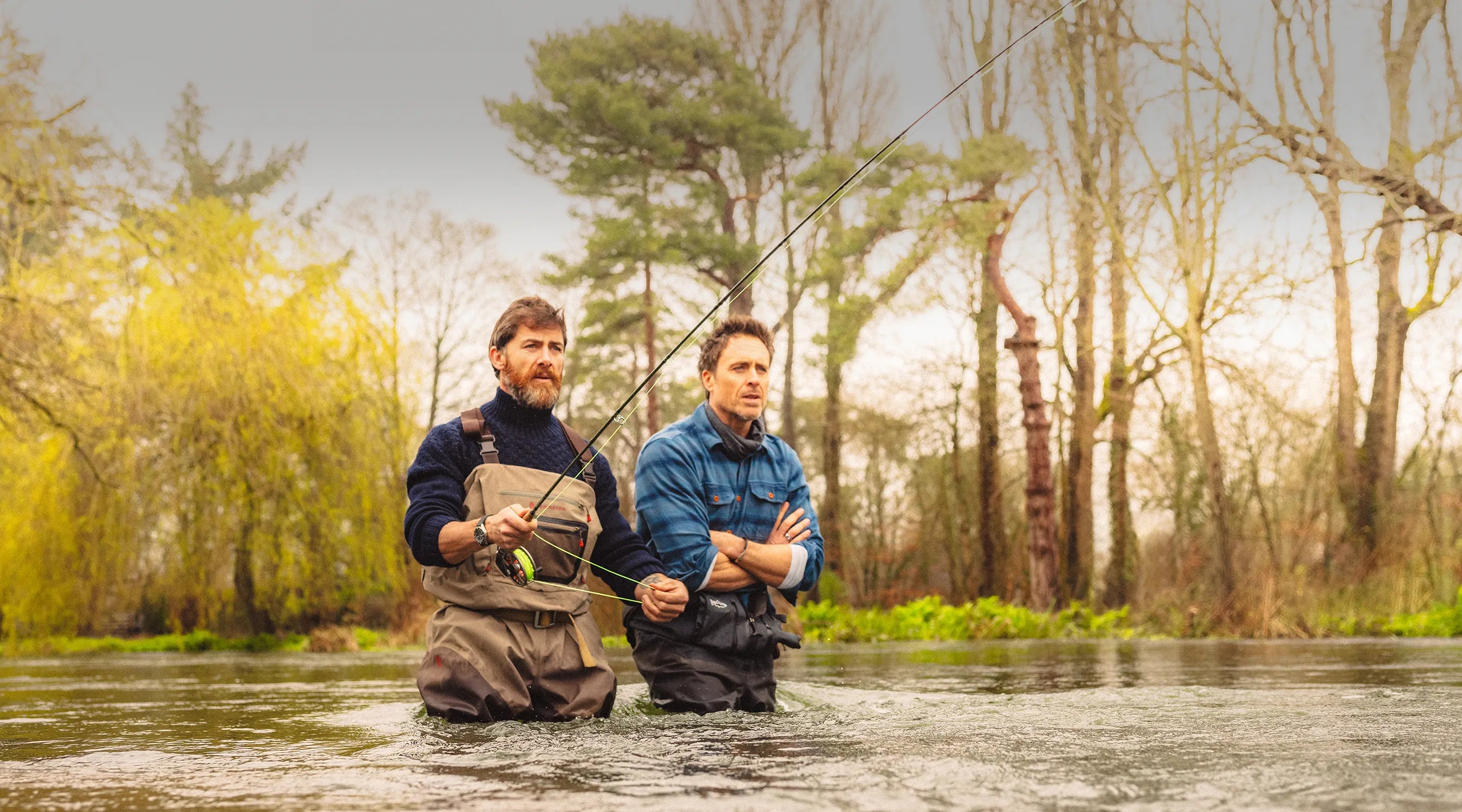
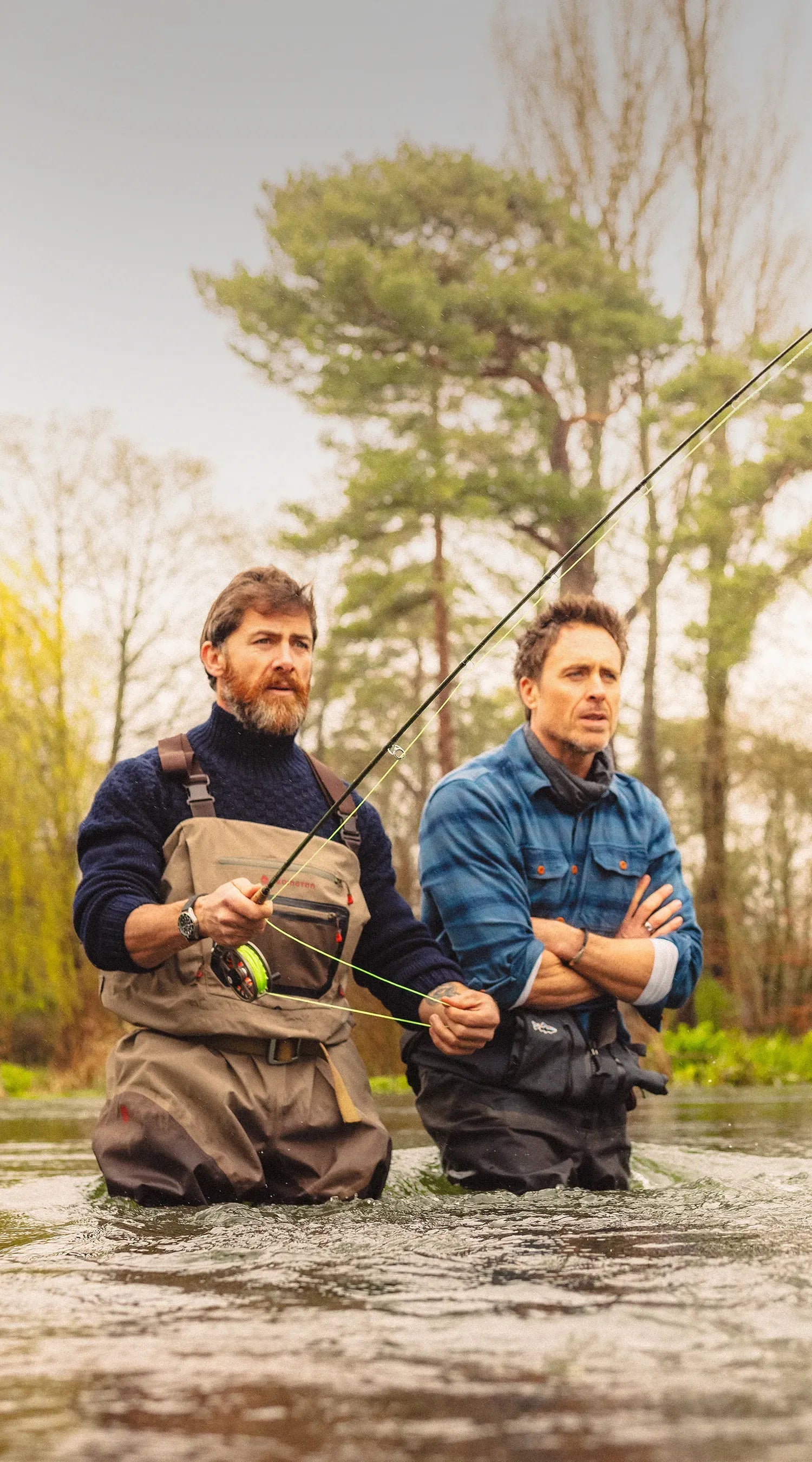
LIFE ON THE RIVER
Celebrating the beauty of our waterways.
In conversation with Aldo Kane and Jim Murray.
Featuring the Bremont Supermarine 300m Date
***
Rivers are the lifeblood of Earth's continents, flowing and meandering like the veins that sustain our planet. Their stories, serenity, and vitality offer the perfect setting to connect with nature. Join us in our backyard, the River Kennet in Berkshire UK, and learn why these essential resources need our attention now more than ever.
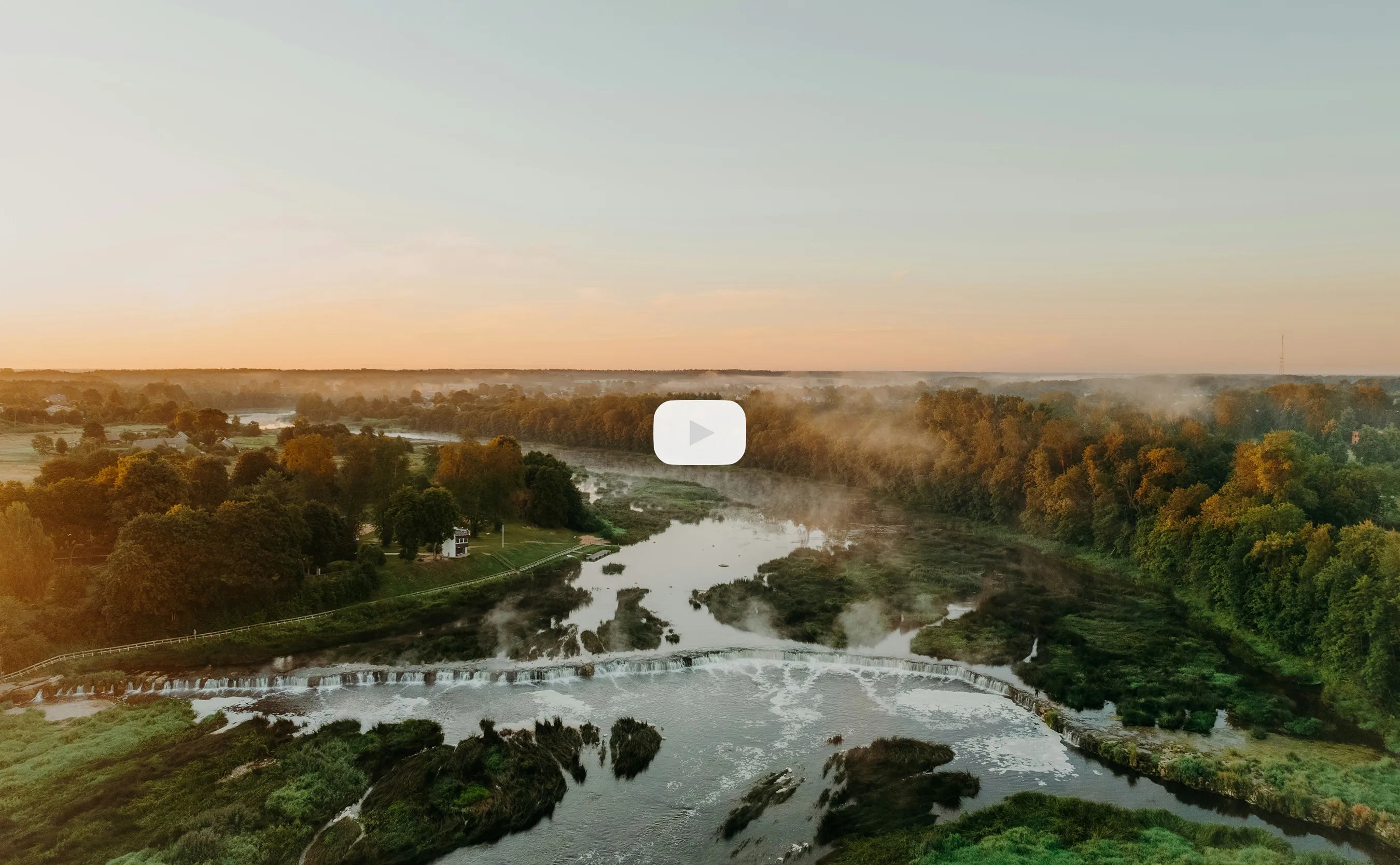
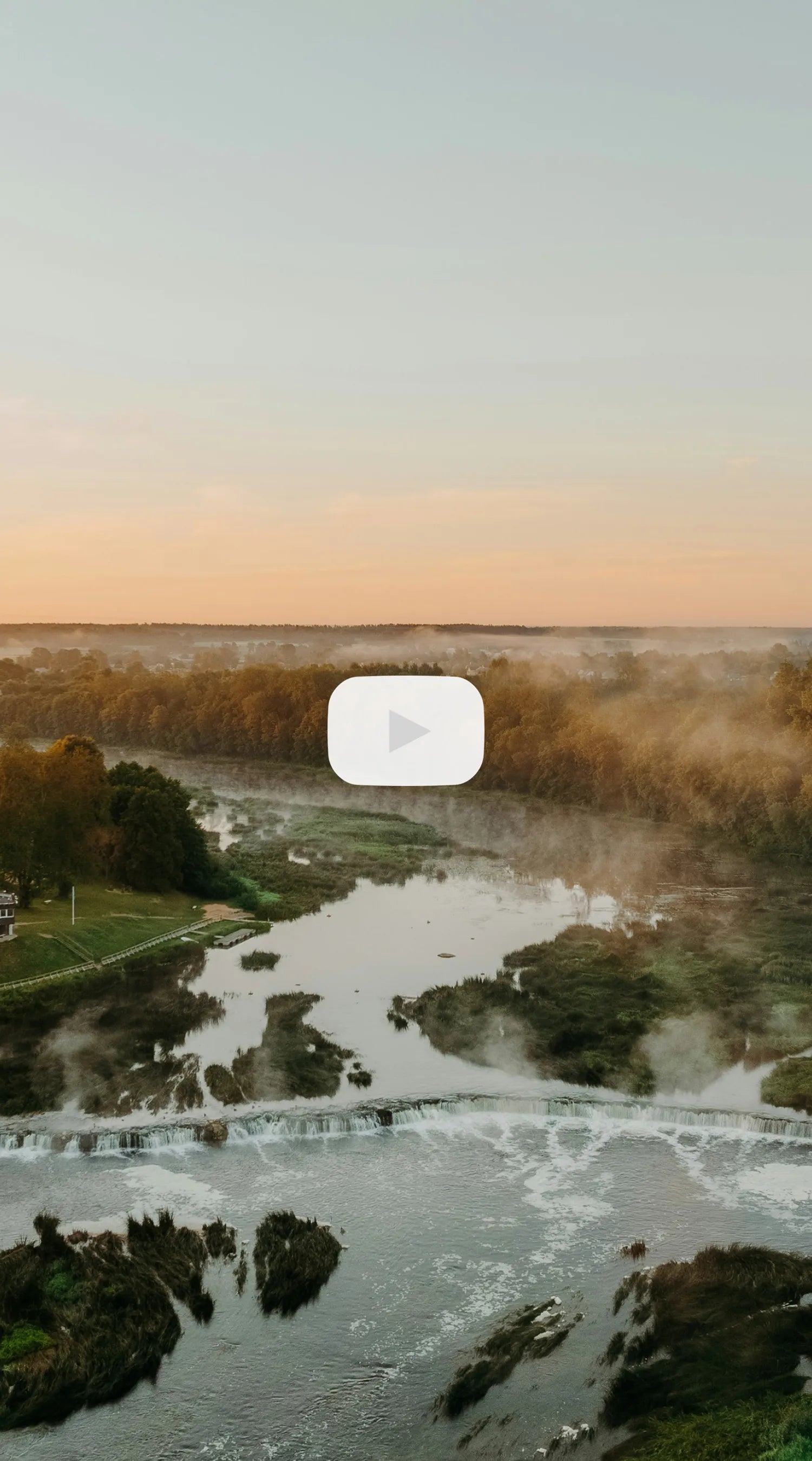
Aldo Kane is an adventurer, television presenter and extreme environments survival expert. After serving a decade in the Royal Marines, he became a safety consultant and supported film crews in some of the world’s most hazardous locations. His adventures have taken him to some of the world's most remote and dangerous places, including navigating the treacherous Congo River and exploring the uncharted parts of the Amazon. Having possibly engaged in every pursuit possible on the waterways, we found out that there is one activity that he has not mastered…Fly Fishing. So, we asked Jim Murray, the esteemed British actor known for his roles in Masters of the Air and The Crown, and a highly regarded figure in the world of fishing and river conservation, to show him the lines. From the stunning Great British countryside, the River Kennet is our setting for this conversation and for a day connecting with nature…
***
In conversation with Aldo Kane and Jim Murray
***
Jim: Basically, what we have here is a trout setup, but we're actually fishing for grayling.
Aldo: Grayling?
Jim: Grayling. They are part of the Salmonid family and they're grey. You can catch them in the winter in the UK because unlike trout, they're not spawning. We leave the trout alone at this time of year and they're normally spawning in the fringes. So, we're fishing for grayling, and this is fly fishing which means it's very light tackle. We've got a fly on the end and we cast the line out, you can see it's got an indicator and the idea is when that indicator disappears, a bit like course fishing, you strike.
Aldo: So…past the orange bit of fluff (the indicator) you then have a line that's going down with a hook on it.
Jim: That's exactly right.
Aldo: There’s no bait on it or anything.
Jim: No there is no bait. So, fly fishing is exactly as it sounds, we're using fly patterns to imitate real-life bait. That's meant to be a nymph, so an insect that’s on its way up to sit at the bottom of the of the film of the river and then it emerges into an insect. It's a nymph first, that's what they're feeding on, so the idea is that will hang off the float.
Aldo: I love learning something new. So you’re sort of whipping it.
Jim: It’s quite simple but it's all about timing. Basically, I'm waiting for the line to go behind me and so I'm using the rod to load the line. There are a couple of ways of learning. What I responded to when I was being taught was the waltz with timing. So, it's back 1, 2, 2, 1, 2. We can have a waltz if you want right now? Can you see, I'm just stopping the rod before bringing it forward again and if I look behind me as well, I can see, and then I'm just releasing when I want to cast. What I'm going to do is I'm going to bring the line in a little bit and I'm going to hand it over to you and you're going to do the same and then we're done
Aldo: Can I hook myself?
Jim: You might hook yourself. That's all part and parcel of the initiation ceremony of fly fishing.
Aldo: How long have you been fishing?
Jim: I've been fly fishing for about 30 years, but I only really took it seriously from about 15 years ago.
Aldo: It always looks so peaceful when you see people on the bank or in the water fly fishing.
Jim: Most of the time you're in the water but you can fish from the bank, it depends. It's all about covering the water so sometimes it's from the bank and sometimes it's from the river. Bigger rivers, obviously you need to be in the water to get the line across to cover the distance. You want to cover the water to maximize your chance of catching a fish.
Aldo: A bit whippy on that one? I need to come lower down, don't I?
Jim: You want to try and slowly bring that rod tip down for the last bit of the cast. There you go, look at that.
Aldo: So we’re on the River Kennet in Berkshire. It’s very tranquil. Is fly fishing where you go to for a bit of peace?
Jim: Fly fishing offers me a lot of things. One of the reasons why I kicked it up a gear around 15 years ago was because I lost my first daughter Ella Jane to a congenital heart disease and that's tough, no parent should lose a child.
I tried everything. Talking to people. Reading books. Therapy. I needed to harness that grief and that trauma but nothing really worked. I found that standing in a river and casting a line helped. It sounds a bit cliché and pretentious, but it became my church. This is where I come to sort things out.
Aldo: That’s amazing. From my background, getting outside and being in nature is absolutely crucial to shifting your mindset. Even this fly fishing, I’m already understanding seeing the impact. I've only been doing it for 10 minutes!
Jim: And you love it?
Aldo: The skill isn't quite there yet but it's something that I want to learn to get better at for sure. Being outside for me is like a cornerstone. So, you've found it's really helped?
Jim: Oh immeasurably. I mean, nothing was helping initially and I'd fly-fished way before that but not to the extent that I started to after losing my daughter. I went fishing to try and figure out why therapy wasn’t working. Why talking to mates wasn’t really doing what it should have. Because everybody's different and everybody has different needs emotionally.
Aldo: What is it about fly-fishing specifically that you think helped?
Jim: That's a good question. I still don't know the answer. I'm still figuring it out. I think it's something to do with the rhythm of casting. You're in rhythm with nature. I don't want to sound pretentious, but you must get that when you're climbing or kayaking?
Aldo: It's about being connected to nature. Being in the river now, there is a continual flow going past me. I can feel it on the back of my legs and I'm completely aware of it. I can hear the water moving around me, I can hear the birds…
Jim: Totally right. It's absolutely about being connected to nature and these phrases get banded around in such abundant cliché form but it's true. If I'm here doing this and absentmindedly looking around and looking for fish, what else am I thinking about? I’m not thinking about anything else.
Aldo: You're not trying to process anything?
Jim: The monkey mind is not in control. When you’re here it’s all very ‘in the moment’. It's all very now and it's all very present. I'm not worried about work, I'm not worried about family, I'm not worried about any of the usual strife that gets in the way.
Aldo: How long would you be in the water normally?
Jim: Well, it depends. When you're salmon fishing or when you're any kind of fly-fishing, you want to have your hook in the water for as long as possible. So, 10 to 12 hours a day.
Aldo: Wow!
Jim: Yeah, it's exhausting but the but the time goes like that. Four hours, eight hours feels like half an hour. You're literally ‘in flow’. I know, again the clichés are abundant but it's true. It was Professor Mihaly Csikszentmihalyi who discovered this term, and I think that's exactly what you are when you're fishing. You're ‘in flow’. Our first fishing show was going to be called ‘In Flow’ and we tried to sell it to Netflix. ITV bought it in the end and called it ‘Robson and Jim's Fly-Fishing Show’. It doesn't quite have the same depth does it ITV? ‘No, but it's cheap and cheerful’.
The Supermarine Collection
At the centre of the campaign lies the new Supermarine 300m.
A timepiece that is perfectly suited to the demands of the Rivers and Oceans of the world.
Jim: And what about yourself? You were out on the river earlier in a Canoe? Was that a Canadian Canoe?
Aldo: Yeah, that’s right. I first started canoeing when I was a kid. So a Canadian canoe has an open top and they are built for expeditions. Loading up with wood, with all your camp gear, your tents and just heading off and having an adventure. More often than not, I've paddled on my own, so you sit at the back of the canoe and that allows you to direction-find, to steer and to keep all your kit up front. I think it’s one of the best vehicles for exploring the waterways of the world. If you look at the UK, we are an island nation, we are absolutely riddled with rivers, canals, waterways, lochs, lakes and to be able to travel on those waterways, those arteries, just opens so much more of the country for adventure.
Jim: So is Canoeing quite freeing for you? Being out on the river?
Aldo: Definitely! I've travelled all over the world and done lots of cool things in different places but when I put the boat in this morning and started paddling down the river I was just taken back to when I was young, in the Scouts and exploring round about my local neighbourhood in Scotland. It just took me straight back to that time of being in the river, with no one else there. It's so quiet and you're just drifting with the flow. You can hear the birds, you can see the kites flying overhead and it's just really magical. And it's only an hour from my house in Bristol!
When I'm on a river journey I love it, because every single day is different, and every single second is different. You're passing a different part of that river. There is the old cliché that life is like a river, it's flowing and it's moving in one direction, but I think for me when I'm on a river I'm connected and I'm grounded to that area, to that country, to that environment and it does remind you that all things flow to the sea.
Aldo: I spotted something on the bank further down there… is it flint?
Jim: It's chalk. We're in a chalk stream here on the River Kennet and chalk streams are very precious, very unique to the UK. About 90% of the world's chalk streams are in the UK and about 80% of those are in the south of England.
Aldo: What's so unique about a chalk stream? Is it the substrate the bottom?
Jim: That's exactly right. They have what's called a chalk aquifer so all the water that gathers is filtered down into the aquifer and then it's pushed back up decades later through springs, filtered. What that means is it offers such a rare and rich ecosystem and it’s normally in very good health if it's looked after.
Aldo: They’re spring-fed as opposed to runoff from mountains.
Jim: That's right. They're not spate rivers but the problem we have with chalk streams is they're very rare. They’re nicknamed English rainforests for that reason because they're so rich.
Aldo: So biodiverse.
Jim: So biodiverse! The ecosystem that they support is so rich in life but like all rivers in the UK, they're suffering from pollution and abuse, albeit from water companies, who as we know, have been criminally destroying our rivers for decades, but also agriculture. Unlike water companies, farmers don't intentionally want to damage the rivers but they're not incentivised by the government in any way to prioritise rivers, and much of the environment, so that needs to change.
Aldo: So, you're talking, sewage, raw sewage, and I guess that the runoff from fields?
Jim: That's right. Runoff from fields, whether it be chemical runoff from fertilisers. You've got the problem with the poultry farming up on the Wye with all the phosphates and nutrients. Or you've got the runoff of the topsoil and the runoff of the silt and the sediment which gets into these rivers and just smothers all life on the riverbed.
Aldo: So, I've seen the algae blooms before which come from nitrates from farming, and they get flushed out into the sea, but are there the same problems in rivers?
Jim: Absolutely. Algae blooms are caused by too much heat, lack of oxygen in the water and also from too many phosphates and nutrients coming into the river. It causes algae to bloom and smothers all the goodness.
Aldo: Would you say that the UK rivers are in dire straits?
Jim: I would, sadly. But I always like to look on the bright side of these things. It’s not irredeemable, but we need to be acting now.
Aldo: What are the action points then? What can we do?
Jim: Well, I think traditionally you would have liked to think that your representatives, your government representatives, your local MPs could, on behalf of you, take these big issues to Parliament and get laws changed but sadly as we know, when it comes to the environment and certainly when it comes to rivers, they are incredibly ineffectual and almost apathetic and indifferent. But what's great about social media and the fact that we're all much more closely connected is that if we all collectively use our voices, report abuse when we see it on the river, talk to each other, court the media as and when there's a proper story to tell. All of this makes a massive difference and we need to be holding these water companies to account.
Aldo: So, it's very difficult to actually manage and to protect?
Jim: The government can't manage it because they don't have the resource or the inclination, but we can. We anglers, canoeists, swimmers, dog walkers and anyone who is connected to the river (that's all of us in my book) can make a difference and what we can do is report it when we see sewage being illegally dumped into rivers. If we have a collective voice we can really make a difference and it's starting to. They call it citizen science and it's working. It's making a big difference. It’s a shame because we shouldn't be having to do it. We should be getting on with our lives. We pay our taxes, we want to trust our government to look after our rivers, but they don't, so we're having to do it instead.
Aldo: Does that have a knock-on effect to the fish, for example we're fishing grayling here, with salmon, with trout, with other fish. Does that have a knock-on effect?
Jim: Massive, sadly. For instance, there's another chalk stream close to this one called the River Test which is arguably a world-famous trout river, it's where fly-fishing came from and they have a small but vital salmon stock. It's a chalk stream salmon species and what happens is every time, in the Test’s case it's southern water. They dump illegal sewage in the headwaters. This time of year the salmon are spawning and that sewage just kills all the spawning eggs and that's an endangered species now so it has a massive knock-on effect to the wild fish. 0% of rivers across the UK and Northern Ireland are considered to be in good health right now.
Aldo: So not even 1%? Effectively what that’s saying is that all rivers are in trouble, or they're polluted?
Jim: Yeah, and that's a big statistic, that's huge.
Aldo: I grew up in Scotland. I wonder if they are involved. I guess they would be, if it's the same in England?
Jim: I spent a lot of time up in Scotland salmon fishing and I'm an ambassador for the Atlantic Salmon Trust. They're not in as bad health but they're still not in great health and the salmon stock are in huge decline partly because of man-made obstacles which could be hydro’s or historic dams and weirs that don't cater for running fish. There is pollution going on in Scotland but not to the same effect as in the UK, because there are less people, crudely speaking.
Aldo: Less industry up there?
Jim: There's less industry but there's aquaculture up there. You don't want to get me started on that, that's fish farms off the coast.
Aldo: I've noticed a lot more of them when I'm back home. There's a lot of them off the coast but it seems like that's a hotly debated topic up there.
Jim: Exactly, it's contentious isn't it and nobody wants to take work away from people, but we argue that you can still have aquaculture, you can still farm salmon because there's a need for it, that's undeniable. There's demand for cheap protein but just do it in pens on land. Take the pens out of the sea because all the pollution, the dead fish, all the chemicals they put in, all the sewage, all the shit that these fish produce, kills the seabed beneath but that's only one of many problems.
Aldo: So, for you, fly fishing is good for mental health?
Jim: It's great!
Aldo: It's not specifically about the fish but there's a big part of conservation in there with what you're doing?
Jim: I think what happens invariably, to anybody who starts fly fishing, is you can't help but learn and have your eyes open to the issues and the challenges that rivers and the wild fish are facing and when I first started fishing I wasn't particularly interested in protecting rivers or conservation or activism but you can't help but be gobsmacked by what you learn when you spend more time on the river. So, I think it offers that too. It's an educational thing as well as a therapeutic thing to do and a fun thing to do! Let's not forget that. I wouldn't be stood here unless it was fun.
Aldo: It’s quite nice just to spend time on the river isn’t it.
Jim: There's no better place to be. I know it's March and it's cold, but I'd rather be here than anywhere else.
Aldo: From my point of view, it's just been really cool learning more about the river. I’ve spent a lot of time on them over the years but this is the first time I've been fly-fishing. It’s quite nice to get some more information from you and that sounds ridiculous but to actually learn something not just about fly-fishing but also about the river.
Jim: Fly-fishing is a gateway into learning about the river and everything that surrounds the them, including the fish in it, so you can't help but learn.
Aldo: I also like learning the other part of it from you because I find being outside, being in nature (which I bang on about all the time), like you said, it's your church. For me it's just about being outside, being in nature, being in the environment. It’s so good for mental and physical health. It's freeing.
Jim: Well, you should. It's no coincidence that in lockdown fishing was one of the first things that they allowed us to do, and it blew up!
Aldo: Did it?
Jim: Yeah. I'm happy to say that a lot of people have stuck with it too. For all the reasons that you've just mentioned so eloquently, it really is. It ticks all those boxes and I think I think there's a budding fisherman in you somewhere!
Aldo: I like the idea of it, I'm just not sure I can get the hang of it yet…
Jim: I'll let you into a secret, you lost the hook about 20 minutes ago… Don’t worry, it’s not about catching fish… it really isn’t about catching fish.
Aldo: Thankfully!
Jim: Thankfully we are not fishing for our supper…
Aldo: It’s just quite a nice process, isn’t it?
Jim: It’s beautiful. You can totally lose yourself.
Aldo: How long did it take for you to learn?
Jim: It’s like being a Jedi, you can never be fully formed or a consummately brilliant fly-fisherman. You’re always learning and you’re always curious. The day you stop being curious you may as well pack up your rod and do something else.
Aldo: Still quite whippy right?
Jim: A little bit whippy. That’s because you got more line out, so reel some more line in. I think you got a bit over-confident a bit early on, Aldo. Is that what they used to say on your school reports?
Aldo: ‘Confident, lacks skill’.
Jim: ‘Aldo is a very confident young man but unfortunately his skill set doesn’t match his confidence’.
Aldo: Not yet, we’ll get there. One more.
Jim: That’s nice, mate. I think you may finally have the hang of this…
***
Featuring Aldo Kane // @aldokane
And Jim Murray // @thejimmurray
Shot on the River Kennet, Berkshire UK
Jim Murray is an ambassador for the Angling Trust and the founder of the conservation group Activist Anglers and works with several environmental organisations to highlight issues around pollution and the plight of the Atlantic Salmon.



![Bremont Watch Company Watches | Mens | Supermarine Supermarine 300M [Black Dial, Rubber]](http://us.bremont.com/cdn/shop/files/Supermarine-S300Date-1copy_8dd53c60-d05e-4920-b7ee-10ec6b96616c.png?v=1712625313&width=1000)
![Bremont Watch Company Watches | Mens | Supermarine Supermarine 300M Date [Black Dial, Rubber]](http://us.bremont.com/cdn/shop/files/Supermarine-S300Date_8df188a6-86c0-44d8-8f2d-ecea594f9da5.webp?v=1712625313&width=1000)
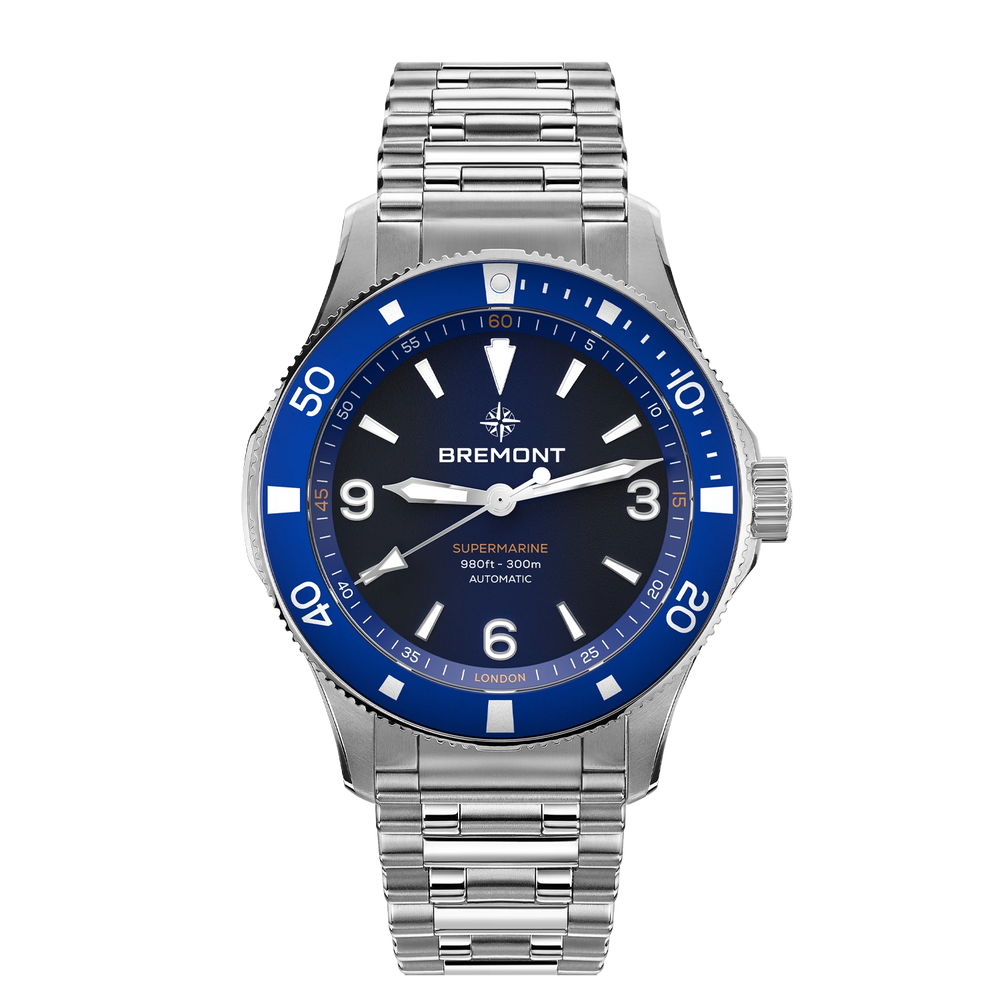
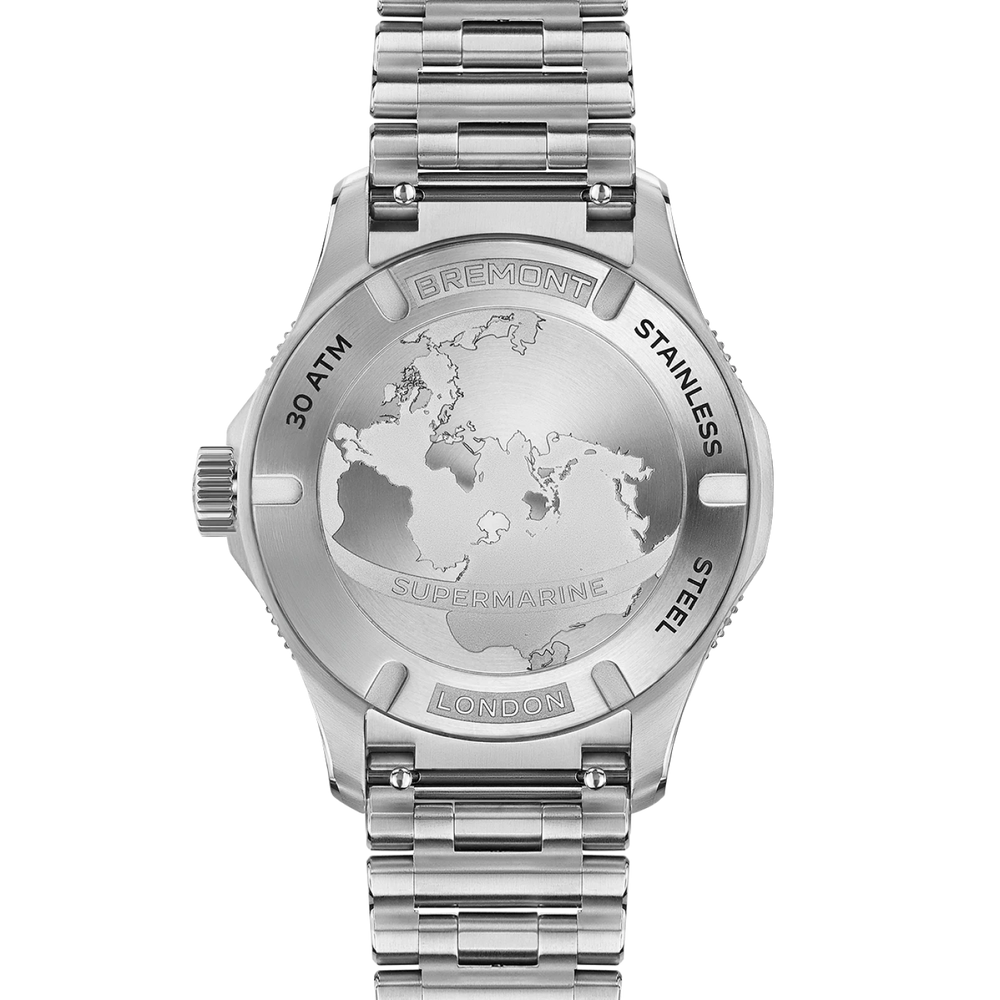
![Bremont Watch Company Watches | Mens | Supermarine Supermarine 300M [Green Dial, Rubber]](http://us.bremont.com/cdn/shop/files/Supermarine-300M-Green-09copy.png?v=1712625312&width=1000)
![Bremont Watch Company Watches | Mens | Supermarine Supermarine 300M [Green Dial, Rubber]](http://us.bremont.com/cdn/shop/files/Supermarine-300M-Green-10.png?v=1712625312&width=1000)








